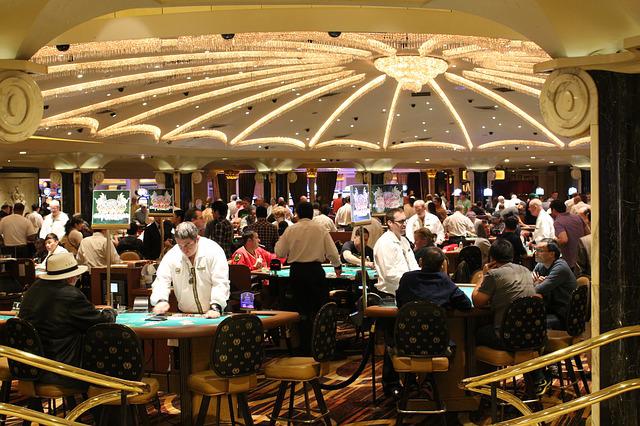1. Introduction to Gambling in Nigeria
Gambling has a long and intricate history that has evolved over time and varies across different cultures. In Nigeria, gambling practices have deep-rooted origins that can be traced back to ancient times. From traditional forms of gambling embedded in cultural practices to the introduction of Western gambling during the colonial era, the landscape of gambling in Nigeria has experienced significant transformations. This article aims to uncover the rich history of gambling in Nigeria, exploring its early origins, the influence of colonialism, the legalization and regulation efforts, socioeconomic impacts, technological advancements, and the current challenges and future prospects faced by the gambling industry in Nigeria. By delving into these aspects, we can gain a comprehensive understanding of how gambling has shaped and continues to shape the Nigerian society.
1. Introduction to Gambling in Nigeria
1.1 Gambling: Definition and Types
When we think of gambling, it often conjures up images of glitzy casinos, flashy slot machines, and tense poker games. But what exactly is gambling? In its simplest form, gambling refers to the act of betting or wagering something of value on an uncertain event in the hopes of winning a prize. From sports betting to card games, lottery tickets to online slots, there are various types of gambling activities that people engage in.
1.2 Overview of the Gambling Industry in Nigeria
Nigeria, known for its vibrant culture and diverse population, also has a thriving gambling industry. In recent years, gambling has become increasingly popular across the country, with a growing number of Nigerians trying their luck at various games of chance. From traditional forms of gambling to modern online platforms, the industry has experienced significant growth and shows no signs of slowing down.
2. Early Origins and Traditional Forms of Gambling
2.1 Pre-Colonial Gambling Practices
Long before the advent of modern-day casinos, Nigerians have been indulging in gambling in different forms. In the pre-colonial era, gambling was deeply rooted in the cultural and social fabric of various Nigerian communities. Games such as Ayo (a popular board game), Ludo, and dice games were not only a source of entertainment but also played significant roles in traditional ceremonies and rituals.
2.2 Cultural and Traditional Gambling Games in Nigeria
Nigeria’s rich cultural heritage is reflected in its diverse range of traditional gambling games. From the Hausa game of Dambe, a form of boxing with wagering involved, to Kokowa, a wrestling match where spectators place bets on their favorite participants, these games showcase the fusion of entertainment, skill, and chance. These traditional games continue to be enjoyed today, preserving Nigeria’s gambling history.
3. Colonial Influence and Introduction of Western Gambling
3.1 Impact of Colonial Rule on Gambling Practices
With the arrival of colonial powers in Nigeria, the gambling landscape underwent significant changes. The colonial rulers introduced new forms of gambling, influenced by Western practices. However, they also imposed restrictions and regulations on certain traditional gambling activities, considering them as morally questionable or socially disruptive.
3.2 Introduction of Western Casino and Card Games
During the colonial era, Western casino and card games started gaining popularity among Nigerians. Card games like Poker and Blackjack, along with roulette and slot machines, became part of the gambling scene. The allure of these new games, coupled with the colonial influence, led to their integration into Nigerian society and laid the groundwork for the modern gambling industry we see today.
4. Legalization and Regulation of Gambling in Nigeria
4.1 Historical Context of Gambling Legislation
The journey towards the legalization and regulation of gambling in Nigeria has been a complex one. Over the years, the government has grappled with finding a balance between addressing societal concerns and capitalizing on the economic potential of the industry. From the initial prohibition of gambling under early colonial rule to the subsequent implementation of licensing and regulatory frameworks, the legal landscape has evolved steadily.
4.2 Current Laws and Regulatory Bodies
At present, Nigeria has a patchwork of laws governing different aspects of gambling. The National Lottery Act of 2005 provides legislation for lotteries and sports betting, while individual states have the authority to regulate other forms of gambling within their jurisdictions. Additionally, regulatory bodies like the National Lottery Regulatory Commission and the Nigerian Gaming Commission play pivotal roles in overseeing and ensuring fair play within the industry.
Uncovering the history of gambling in Nigeria reveals a fascinating journey from traditional practices to the introduction of Western games and the subsequent establishment of a regulated industry. As Nigerians continue to embrace the thrill of gambling, the industry’s growth is likely to shape the cultural and economic landscape of the country for years to come.
5. Socioeconomic Impacts of Gambling in Nigeria
5.1 Employment and Economic Contribution
Gambling isn’t just about a few lucky winners hitting the jackpot and sailing off into the sunset. It actually plays a significant role in Nigeria’s economy and job market. Casinos, betting shops, and online gambling platforms create a plethora of employment opportunities. From dealers and croupiers to customer service representatives and marketing professionals, the industry generates jobs for many Nigerians.
Furthermore, gambling establishments contribute to the country’s economic growth. They pay taxes, invest in infrastructure and technology, and contribute to tourism development. The revenue generated from gambling activities can fund public projects and initiatives, ultimately benefiting the entire community.
5.2 Social and Health Implications
Like any activity involving money, gambling has its fair share of socio-economic implications. While some may view gambling as harmless fun, it can have negative effects on individuals and society as a whole. For some people, gambling becomes addictive, leading to financial problems, relationship breakdowns, and mental health issues.
Furthermore, gambling can exacerbate existing socio-economic inequalities. Those who are already in vulnerable positions may be more susceptible to the allure of quick and easy money, leading to further financial hardship and social problems.
It is essential for the government and stakeholders to address potential social and health implications by implementing responsible gambling measures and providing resources for addiction treatment and support.
6. Technological Advancements and the Rise of Online Gambling
6.1 Introduction of Online Gambling Platforms
In recent years, there has been a significant shift in the gambling landscape with the rise of online gambling platforms. Nigerians can now enjoy their favorite casino games and sports betting activities from the comfort of their own homes, thanks to technological advancements.
Online gambling platforms offer convenience, accessibility, and a wide range of options to choose from. Whether it’s virtual slot machines, live dealer games, or sports betting, these platforms provide users with a thrilling and immersive gambling experience.
6.2 Impact of Technology on Gambling Behavior
While online gambling has revolutionized the way Nigerians gamble, it is crucial to consider the impact of technology on gambling behavior. The ease of access and 24/7 availability of online gambling platforms can increase the risk of excessive gambling and addiction.
Furthermore, the integration of technologies such as virtual reality and augmented reality into online gambling platforms has the potential to enhance the immersive experience, making it even more enticing and addictive for some individuals.
Regulation and responsible gambling practices must be put in place to ensure that technological advancements in online gambling are accompanied by measures to protect individuals from potential harm.
7. Current Challenges and Future Outlook of Gambling in Nigeria
7.1 Problem Gambling and Addiction Issues
As gambling continues to expand in Nigeria, it is essential to address the issue of problem gambling and addiction. The accessibility and convenience of gambling, both offline and online, can lead to excessive gambling behaviors and dependency. Without proper regulation and support systems in place, vulnerable individuals may find themselves trapped in a cycle of gambling-related problems.
Efforts must be made to raise public awareness about the risks and signs of problem gambling, while also providing accessible resources for treatment and support. Collaboration between the government, gambling operators, and healthcare professionals is crucial in tackling this challenge.
7.2 Opportunities and Potential Growth Areas
Despite the challenges, the future of gambling in Nigeria holds exciting opportunities and potential growth areas. With the right regulations and responsible practices, the industry can continue to contribute to the economy, create employment opportunities, and attract tourists.
Moreover, advancements in technology open doors for innovative gambling experiences and products. Virtual reality casinos, mobile betting apps, and cryptocurrency gambling are just some examples of the possibilities that lie ahead.
By ensuring responsible gambling practices, addressing problem gambling issues, and fostering a safe and enjoyable gambling environment, Nigeria can harness the potential of the gambling industry while protecting its citizens from harm.In conclusion, the history of gambling in Nigeria is a fascinating journey that reflects the cultural, socioeconomic, and technological changes the country has undergone. From traditional gambling practices to the introduction of modern forms of gambling, the industry has evolved and adapted to the changing times. While there are ongoing challenges and concerns surrounding the impact of gambling, there are also opportunities for growth and regulation. By understanding the past, we can better navigate the future of gambling in Nigeria, ensuring responsible practices, and maximizing the potential benefits for individuals and the society as a whole.
FAQ
1. Is gambling legal in Nigeria?
Yes, gambling is legal in Nigeria. The country has established laws and regulatory bodies to govern and control the gambling industry.
2. What are some traditional forms of gambling in Nigeria?
Traditional forms of gambling in Nigeria include games such as Ayo, Ludo, and traditional betting on sports and cultural events.
3. What are the socioeconomic impacts of gambling in Nigeria?
Gambling in Nigeria has both positive and negative socioeconomic impacts. While it can contribute to employment and economic growth, it also presents challenges related to addiction and social issues.
4. How has technology influenced the gambling industry in Nigeria?
Technological advancements have led to the rise of online gambling platforms in Nigeria. These platforms have provided convenience and accessibility to gamblers, but also raise concerns about responsible gambling and regulation.

AdHang.com is the No.1 agency for digital marketing in Nigeria and the first Internet public enlightenment agency in Africa. AdHang has everything needed to achieve your digital marketing objectives and goals. From strategic digital marketing, a tactical approach to employing advanced digital marketing tools and technologies, using seasoned marketers with decades of marketing communications experience.









Comments